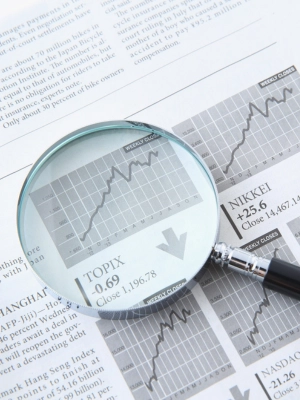Global megatrends are transformative forces that drive fundamental shifts in society, the economy, and the environment. These trends, characterized by their pervasive impact and long-term influence, are reshaping the global landscape, presenting both opportunities and challenges for businesses, governments and individuals. Understanding these megatrends is crucial for decision-makers seeking to navigate an increasingly complex and interconnected world.
One of the most prominent global megatrends is the rapid pace of technological advancement. Innovations in artificial intelligence, quantum computing, machine learning, robotics and biotechnology are revolutionizing industries and redefining the boundaries of what is possible. These technologies are not only enhancing productivity but also creating entirely new markets and business models. For example, the rise of automation and AI-powered tools has transformed manufacturing, logistics and even healthcare. However, this trend also brings challenges, particularly in terms of workforce displacement and the ethical implications of deploying advanced technologies. Businesses must balance the pursuit of technological innovation with a commitment to responsible practices and workforce reskilling.
Urbanization is another significant megatrend shaping the global landscape. By 2050, it is projected that nearly 70% of the world’s population will live in urban areas, compared to just over half today. This demographic shift is creating unprecedented demand for infrastructure, housing and services. Cities are becoming hubs of economic activity, innovation and cultural exchange, but they also face significant challenges such as congestion, housing shortages, pollution and social inequality. Governments and private sector actors must collaborate to develop sustainable urban planning solutions that accommodate growth while minimizing environmental and social impacts. Smart cities, leveraging technologies like IoT and data analytics, represent a promising approach to addressing some of these challenges and enhancing urban liveability.

The global population is not only becoming more urbanized but also older. Population aging is a megatrend that poses profound implications for economies and societies. As life expectancy increases and birth rates decline, many countries are experiencing a shift in their demographic composition. Aging populations can strain healthcare systems, pension schemes and labour markets. However, this trend also presents opportunities in sectors such as healthcare, pharmaceuticals and aged care services. Businesses that adapt to the needs of older consumers and leverage the potential of an experienced workforce can gain a competitive advantage in this changing demographic landscape.
Climate change and environmental sustainability are also one of the megatrends of our time. The increasing frequency and intensity of extreme weather events, rising sea levels and biodiversity loss underscore the need for action. Governments, businesses and individuals are under growing pressure to transition to more sustainable practices and reduce greenhouse gas emissions. Renewable energy, circular economy models and sustainable agriculture are emerging as some of the critical components of this transition. Companies that prioritize sustainability are not only mitigating risks but also responding to consumer demand for environmentally responsible products and services. However, achieving meaningful progress will require careful economic analysis, especially when it comes to the cost of energy, global cooperation and substantial investment in innovation and infrastructure.

Economic globalization and shifting power dynamics are also reshaping the world. While globalization has facilitated unprecedented levels of trade, investment and cultural exchange, it has also led to economic disparities and geopolitical tensions. The rise of emerging economies, particularly in Asia, is challenging traditional power structures and creating new centres of influence. Businesses must navigate this evolving landscape by understanding diverse markets, managing supply chain risks and adapting to regulatory changes. The recent US trade and tariff initiatives add another layer of uncertainty and complexity. The ongoing debate over globalization versus protectionism further complicates this environment, requiring strategic agility and resilience.
Societal values and consumer behaviour are evolving in response to these megatrends. There has been a growing emphasis on inclusivity, diversity and social responsibility. Consumers are increasingly demanding transparency and accountability from businesses, favouring brands that align with their values. This shift is driving companies to integrate environmental, social and governance (ESG) considerations into their strategies. Furthermore, the rise of digital and social media has amplified the voices of consumers, enabling them to influence corporate behaviour and advocate for change. Companies that embrace these values and actively engage with their stakeholders can build stronger relationships and enhance their reputation in the marketplace. However, there is an emerging push back against some aspects of ESG and companies need to be cautious about too closely and publicly aligning themselves with the political fad or issue of the day.
The intersection of these megatrends highlights the complexity and interconnectedness of the challenges and opportunities facing the world. For instance, technological advancements can drive amelioration to climate change, such as renewable energy innovations or carbon capture technologies. Similarly, urbanization and aging populations can be addressed, in part, through smart city initiatives and healthcare innovations. However, these solutions require collaboration across sectors and borders. Policymakers, businesses and civil society must work together to foster innovation, share knowledge and allocate resources effectively.

The business implications of global megatrends are profound. Companies must adopt a forward-looking approach, anticipating changes and proactively adapting their strategies. This requires not only a deep understanding of the trends themselves but also the ability to integrate them into long-term planning. Scenario analysis, strategic foresight and risk management are essential tools for navigating uncertainty and capitalizing on emerging opportunities. Additionally, businesses must cultivate a culture of resilience and adaptability, empowering their teams to embrace change and drive innovation.
For governments, global megatrends necessitate proactive policymaking and international cooperation. Addressing issues such as climate change, urbanization and demographic shifts requires coordinated efforts and long-term investments. Policies that promote sustainable development, social equity and technological innovation are essential for fostering resilience and ensuring inclusive growth. Governments of all persuasions must also engage with the private sector and civil society in honest and meaningful dialogue to build consensus and mobilize resources effectively.
Individuals, too, play a crucial role in responding to global megatrends. As consumers, voters and members of society, individuals have the power to drive change through their choices and actions. By staying informed about local and global issues, individuals can contribute to a more equitable and sustainable future.
In conclusion, global megatrends are reshaping the world in profound ways, influencing every aspect of society, the economy and the environment. These trends present both challenges and opportunities, requiring businesses, governments and individuals to meaningfully and rationally adapt and collaborate. By understanding and responding to these megatrends, we can navigate the complexities of an interconnected world and build a more sustainable and prosperous future.
PrimaryMarkets
For companies that are not listed on the stock exchange, the PrimaryMarkets trading Platform is an ideal way to facilitate the off-market sale of shares in your company.
PrimaryMarkets is a flexible and evolving Platform that responds in real time to an ever-changing investment environment. In doing so, it provides sophisticated investors with access to companies that are shaping the future in a wide variety of industries and sectors. We provide access to opportunities previously only accessible to institutional investors. In addition to trading, PrimaryMarkets helps companies raise capital from our global investor database.
PrimaryMarkets exemplifies how innovation can transform the way we invest, trade and raise capital by breaking down traditional barriers, providing liquidity solutions and promoting transparency.
As the Platform continues to grow and evolve, it promises to unlock even more opportunities for investors and companies shaping the future of economies.

